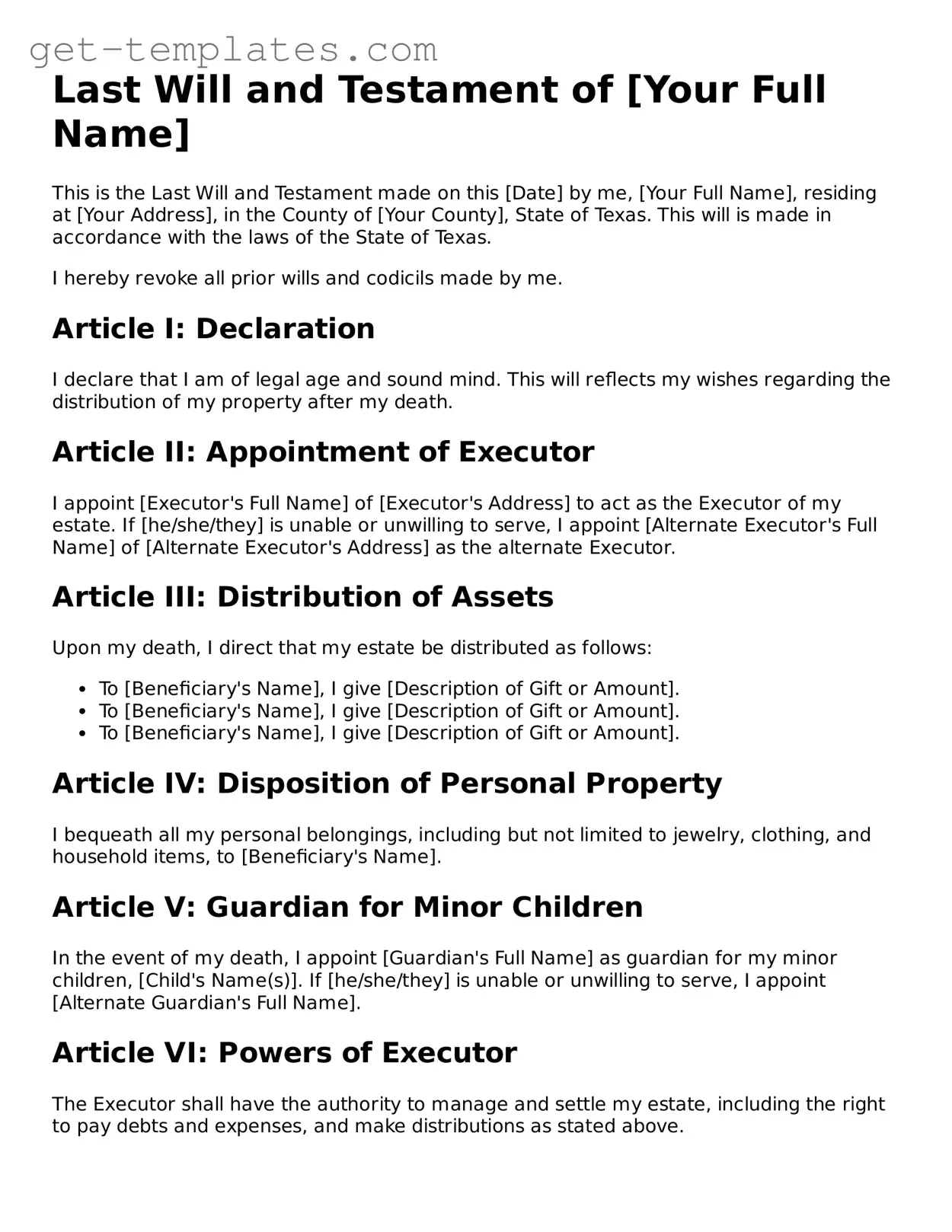Attorney-Approved Last Will and Testament Document for Texas
A Texas Last Will and Testament form is a legal document that outlines an individual's wishes regarding the distribution of their assets after death. This form serves to ensure that personal property, finances, and guardianship of dependents are handled according to the individual's desires. Understanding the importance of this document can provide peace of mind for both the individual and their loved ones.
Get Document Online

Attorney-Approved Last Will and Testament Document for Texas
Get Document Online
You’re halfway through — finish the form
Finish Last Will and Testament online — edit, save, download made easy.
Get Document Online
or
⇓ PDF Form
